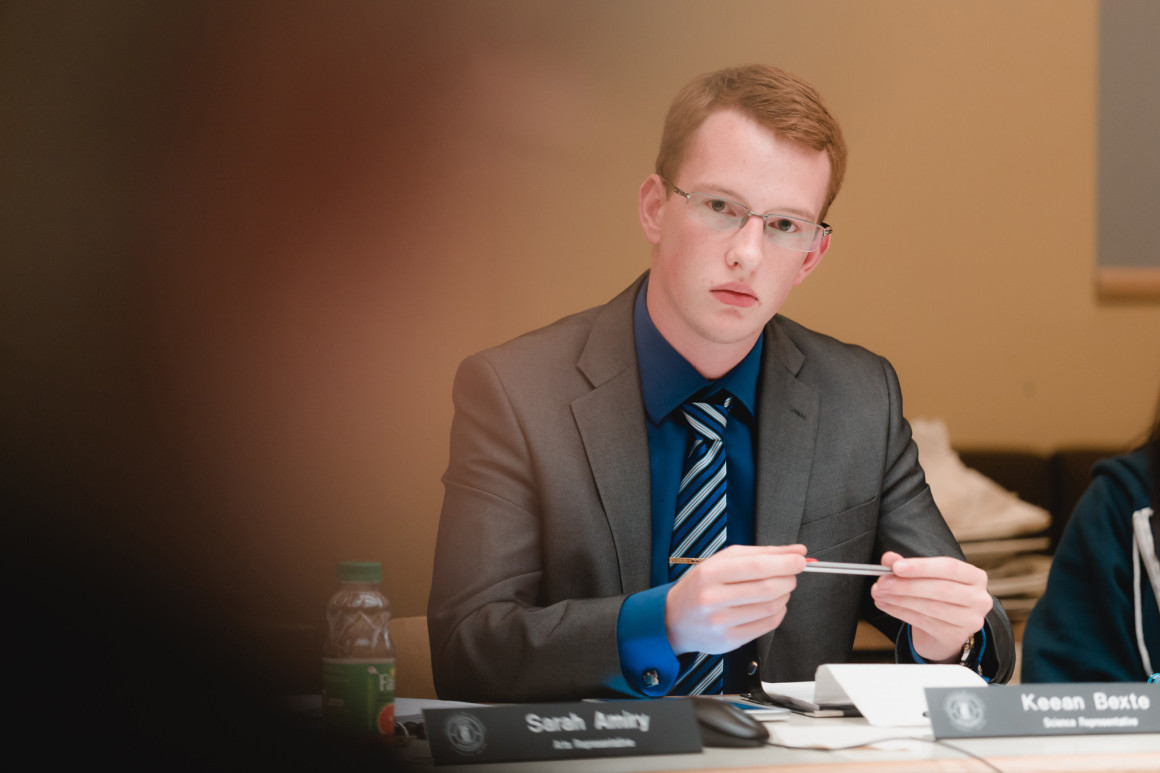
Campaign slates banned, bylaw changes voted down
By Chris Adams, January 8 2015 —
Campaign slates — where two candidates share a pool of funds and campaign together — are now banned during Students’ Union elections at the University of Calgary. New slates regulations were outlined in the Chief Returning Officer’s (CRO) currently unofficial elections package.
The package outlines four rules that forbid slates. Candidates can’t share expenses, appear on another candidates posters, use the same slogan as another candidate or produce materials that resemble another candidate’s.
Slates used to get $300 from the SU to spend on their campaigns, while solo candidates get $150.
Arts representative Kirsty McGowan ran on a slate with fellow arts rep Kalista Sherbaniuk last election. She said slates shouldn’t get twice the funding, but should be allowed because they encourage people to run who otherwise wouldn’t.
“I feel like having slates [gives] people who aren’t as confident to run by themselves a bit of a safety [net]. A lot of people who run in slates make great reps. That shouldn’t be discounted,” McGowan said.
The change was initially proposed at Students’ Legislative Council (SLC) in November, along with a slew of other election policy changes. The amendment was voted down, but the CRO — who sets election policy — banned slates for 2015 in his unofficial election package.
SU vice-president operations and finance Adam Swertz said the CRO often takes policy cues from SLC.
The bylaw amendment would have also allowed permanent SU staff to hire the Chief Returning Officer rather than having elected representatives vote them in.
Although most student representatives voted in favour of the amendment at SLC on Nov. 25, they were short of the two-thirds super-majority needed to pass bylaw changes.
Swertz said when they open up the elections document for amendment, other election policies also open for change. That’s why banning slates was on the table when SLC reviewed the elections bylaw to change regulations around the CRO.
Other proposed changes included allowing the SLC speaker to be an SU employee and allowing the SU to take positions on referenda.
Swertz said the amendment would have given SLC more power in setting election policy.
“SLC was actually going to have the authority to create elections policy every year. It would be a shift toward SLC to have that legislative authority,” Swertz said.
However, SLC only votes on the amendments once and policies only change if the entire amendment is passed.
“We probably could have structured it differently, in hindsight. We could have done ten different amendments,” Swertz said.
SU science representative Keean Bexte was a vocal critic of the amendment that would allow the SU to hire staff members to be speaker. Proponents of the change said staff members would require less training and that there aren’t enough qualified applicants to fill the position.
But Bexte said the change poses a conflict of interest.
“It’s pretty easy to learn and it’s not that hard of a job. We found that with this speaker, Brayden Muenchrath, he picked it up very quickly and he was outside the SU,” Bexte said.
However, Swertz was surprised by the criticism.
“In reality, the speaker does not have the power to sway an SLC meeting,” Swertz said.
The bylaw amendment will return to the Policy Development and Review Committee before returning to SLC in 2015.
